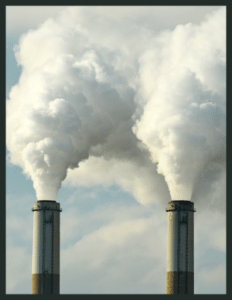 The Environmental Protection Agency has proposed a regulation that could undermine the agency’s mission to protect human and environmental health. Purporting to advance transparency and aimed at what former EPA administrator Scott Pruitt calls “secret science,” the regulation would require research data underlying EPA regulatory actions to be made accessible to the public before the agency could rely on a study. The agency asserts that this rule change will strengthen its decision-making by facilitating outside review of important data. Advocates, scientists, and former EPA officials, however, are criticizing this proposal as an unnecessary attempt to “kill science” at the EPA. The proposed regulation is not only under fire as unnecessary, but also because it threatens the EPA’s access to information that it needs to regulate pollutants in the environment and fulfill its mission to design policies that effectively guard public health.
The Environmental Protection Agency has proposed a regulation that could undermine the agency’s mission to protect human and environmental health. Purporting to advance transparency and aimed at what former EPA administrator Scott Pruitt calls “secret science,” the regulation would require research data underlying EPA regulatory actions to be made accessible to the public before the agency could rely on a study. The agency asserts that this rule change will strengthen its decision-making by facilitating outside review of important data. Advocates, scientists, and former EPA officials, however, are criticizing this proposal as an unnecessary attempt to “kill science” at the EPA. The proposed regulation is not only under fire as unnecessary, but also because it threatens the EPA’s access to information that it needs to regulate pollutants in the environment and fulfill its mission to design policies that effectively guard public health.
Many EPA regulatory actions are based upon studies conducted by public health scholars and physicians. Under the proposed regulation, data, models, and other scientific evidence supporting such actions would have to be made available to the public before the EPA could rely on it. This rule would apply to studies assessing the impact on humans of exposure to pollutants, contaminants, and other substances. The private sector conducts much of this research, meaning that it is valuable proprietary information that research entities will balk at disclosing. Moreover, privacy laws will protect confidential data from human subjects and clinical trials. Thus, this regulation will preclude the EPA from consulting the most pertinent health studies simply because the data supporting them cannot be made publicly available. Also, defending the privacy of millions of U.S. residents while encouraging data transparency requires significant investment in the ever-evolving field of data security. When the Congressional Budget Office assessed a similar proposed regulation in 2015, it estimated that the EPA would spend $10,000 to $30,000 per study. The CBO noted that this cost would provide an incentive for the agency to rely on fewer studies during its regulation development. These factors could result in fewer regulations from the EPA.
In response to this proposal, senior editors from five leading journals, including Science and Nature, described instances in which privacy restrictions prohibit the public release of data. John O’Grady, as president of a union representing thousands of EPA employees, warnedthat this regulation threatens the agency’s access to scientific research. Previous senior EPA officials argue that such a rule, if it had existed in the past, would have prevented the agency from considering public health studies now underlying several of the nation’s most important health protections. Former EPA administrators, both Republican and Democratic, have decried this proposal. For example, Christine Todd Whitman, EPA administrator under President George W. Bush, argued, “the EPA won’t be able to come forward with new regulations because they won’t have enough data” due to this rule, which would pose “an extraordinary threat to science, to the environment, and to human health at large.” Hundreds of U.S. academics have expressed similar concerns. If a data shortage results in poorer health outcomes, it could also prevent the agency from noticing those harmful effects. Even the EPA’s own Science Advisory Board, a committee of 44 researchers and experts, urged the agency to perform a serious assessment of the regulation.
The EPA asserts that this regulation would facilitate the validation of data and improve scientific integrity, yet scientists already practicedata transparency, including through data sharing during the peer-review process. Moreover, peer-reviewed studies and the data supporting them already undergo independent verification by experts and journal editors before they are published and eligible for use by EPA regulators. Peer review maintains the reliability of data in scholarly journals, whose reputation and readership depend on the quality of their publications. Thus, the regulation is ostensibly aimed at a problem that does not exist.
Over many administrations, the EPA has guarded the health and safety of U.S. communities. The agency’s effort to limit atmospheric pollutants has lessened the likelihood that people in the U.S. develop respiratory disease. This work could also mitigate our potential exposure to extreme heat and weather, resource scarcity, and terminal disease for years to come. Unfortunately, the current proposal will weaken the EPA’s capacity to protect human health through informed regulations rooted in reliable data.
The EPA is now accepting public comments on this proposed restriction through August 16, 2018.
